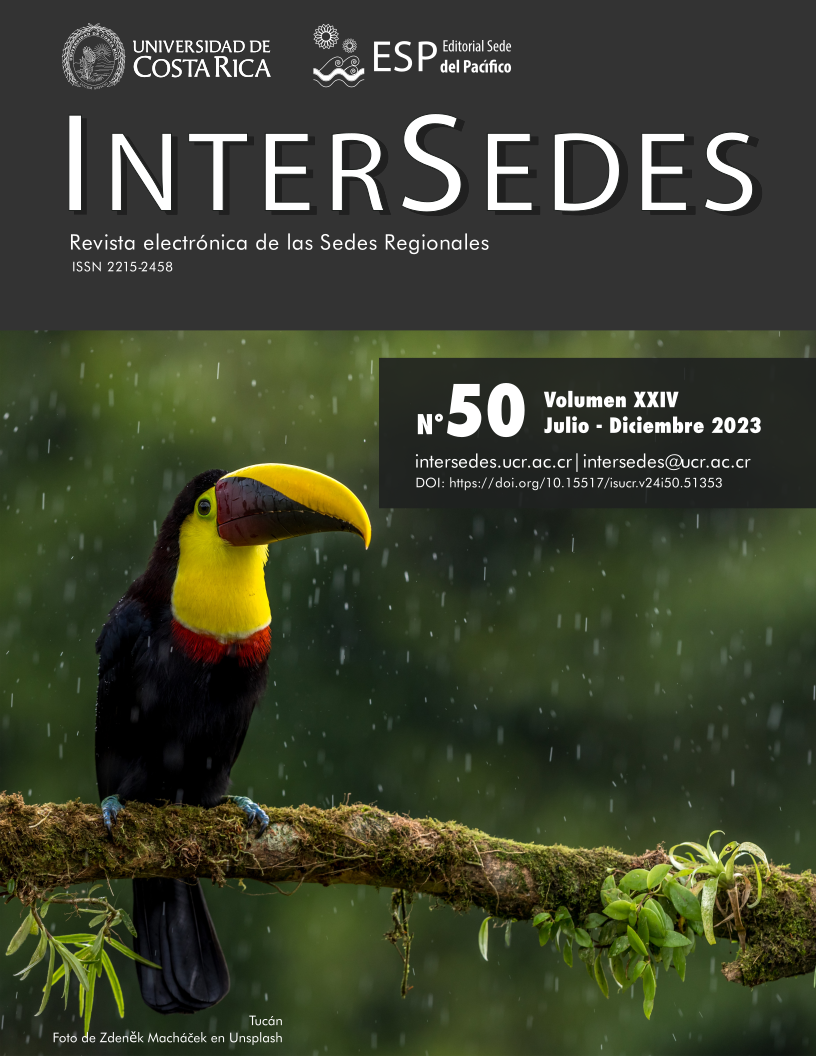Abstract
The COVID-19 pandemic caused higher education institutions to move their courses taught and designed for a face-to-face modality to a virtual platform in a short time. However, these institutions, as well as their teachers, did not have experience in virtual education. Which made each institution respond in different ways to the adaptation of this new learning context. However, many of the strategies implemented during the adaptation process, as well as the experiences of the students in the development of the courses, have not been documented. In order to contribute to the documentation of experiences by students, this article presents the systematization process followed to migrate two courses, from the programming area, which were offered in a 100% face-to-face mode to a 100% online learning context, through the use of the Virtual Mediation platform of the Universidad de Costa Rica. A total of 104 higher education students participated in the study. In order to know the students' perception of the instructional design used, the participants answered an 18-question questionnaire. The results, obtained from 53 people, show that the students have a positive perception of the instructional design used and consider that it supports them: organize and plan the activities to be carried out each week, become aware of the knowledge to be acquired and the importance of each academic resource used. It is expected that this systematization will serve as a guide for teachers who wish to make a planned migration from a face-to-face course to a virtual course.
References
Branch, R. M. (2010). Instructional design: The ADDIE approach. Instructional Design: The ADDIE Approach. https://doi.org/10.1007/978-0-387-09506-6.
Chiappe Laverde, A. (2008). Diseño instruccional: oficio, fase y proceso. Educación y Educadores, 11(2), 229-239. http://www.scielo.org.co/pdf/eded/v11n2/v11n2a14.pdf.
COMIE. (2020, 12 julio). La educación superior ante el COVID-19 y el confinamiento sanitario en México [video]. YouTube. https://www.youtube.com/watch?v=Xh2WQ6YJtzA.
Dick, W., Carey, L., & Carey, J. O. (2015). The Systematic Design of Instruction (The Eight Edition). Educational Technology Research and Development. Person.
Ferri, F., Grifoni, P., & Guzzo, T. (2020). Online Learning and Emergency Remote Teaching: Opportunities and Challenges in Emergency Situations. Societies, 10 (4), 86-104. https://doi.org/10.3390/SOC10040086
García, M. J. M., and Castro, A. M. P. La investigación en educación. In: MORORÓ, L. P.,
COUTO, M. E. S., and ASSIS, R. A. M., orgs. Notas teórico-metodológicas de pesquisas em
educação: concepções e trajetórias [online]. Ilhéus, BA: EDITUS, 2017, pp. 13-40. ISBN: 978-85-7455-493-8. Available from: doi: 10.7476/9788574554938.001.
Gladys, P. G. A., Alexis, V. M., & Nelly, C. (2020). Metodologías de investigación educativa (descriptivas, experimentales, participativas, y de investigación-acción). RECIMUNDO, 4(3), 163–173. https://doi.org/http://dx.doi.org/10.26820/recimundo/4.(3).julio.2020.163-173
Göksu, I., Özcan, K. V., Cakir, R., & Göktas, Y. (2017). Content analysis of research trends in instructional design models: 1999-2014. Journal of Learning Design, 10(2). https://doi.org/10.5204/jld.v10i2.288
Kizilcec, R. F., & Halawa, S. (2015). Attrition and achievement gaps in online learning. Proceedings of the Second (2015) ACM Conference on Learning @ Scale - L@S ’15, Vancouver, BC, Canada, 57–66. https://doi.org/10.1145/2724660.2724680
Kohls-Santos, P. (2021). Covid-19 y educación: experiencias y perspectivas docentes en la educación superior. Revista Iberoamericana de Educación, 86(2). https://doi.org/10.35362/rie8624344
Liyanagunawardena, T. R., Parslow, P., & Williams, S. A. (2014). Dropout: MOOC Participants’ Perspective. Proceedings of the European MOOC Stakeholder Summit 2014.
Mcmillan, J., & Schumacher, S. (2005). Investigación Educativa. Una introducción conceptual. In J. L. Posadas (Ed.), Investigación educativa (5. a edición). PEARSON EDUCACIÓN, S.A.
Onah, D. F. O., Sinclair, J., & Boyatt. (2014). Dropout Rates of Massive Open Online Courses: Behavioral patterns MOOC Dropout and Completion : Existing Evaluations. Proceedings of the 6th International Conference on Education and New Learning Technologies (EDULEARN14), Barcelona, Spain.
Oracle. (n.d.-a). Code Conventions for the Java Programming Language: 1. Introduction. Retrieved August 11, 2022, from https://www.oracle.com/java/technologies/javase/codeconventions-introduction.html
Oracle. (n.d.-b). Overview (Java SE 11 & JDK 11 ). Retrieved August 11, 2022, from https://docs.oracle.com/en/java/javase/11/docs/api/
Pintrich, P. (1999). The role of motivation in promoting and sustaining self-regulated learning. International Journal of Educational Research, 31(6), 459–470. https://doi.org/10.1016/S0883-0355(99)00015-4
Pintrich, P. (2000). The role of goal orientation in self-regulated learning. Handbook of Self-Regulation, (pp. 451–502). https://doi.org/10.1016/B978-012109890-2/50043-3
Pintrich, P. (2004). A conceptual framework for assessing motivation and self-regulated learning in college students. Educational Psychology Review, 16(4), 385–407. https://doi.org/10.1007/s10648-004-0006-x
Zimmerman, B. J. (2000). Attaining Self-Regulation: A Social Cognitive Perspective. Handbook of Self-Regulation, (pp. 13–39). https://doi.org/10.1016/B978-012109890-2/50031-7
##plugins.facebook.comentarios##

This work is licensed under a Creative Commons Attribution-NonCommercial-NoDerivatives 3.0 Unported License.
Copyright (c) 2023 Cindy Rebeca Chavarría Villalobos, Ronald Antonio Pérez Álvarez, Mónica Estela Muñoz Ramírez



